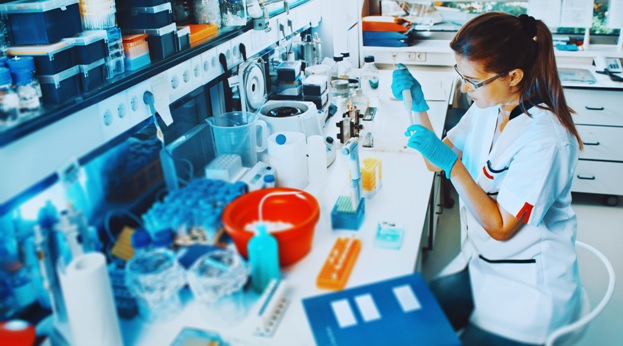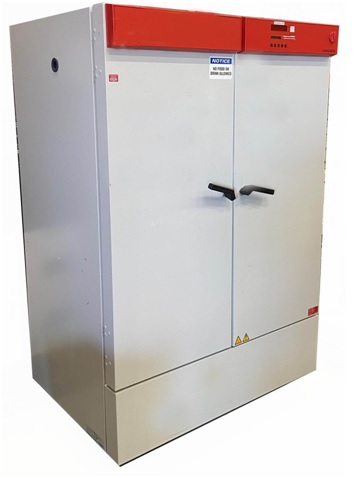The Importance of Medical Laboratory Equipment Maintenance
15th Oct 2024

We’ve all been there—just when you need a piece of lab equipment the most, it fails. Whether it's an incubator not holding its temperature or a centrifuge stalling mid-spin, equipment breakdowns are a frustrating reality. And in a medical lab, these issues don’t just waste time—they can affect the accuracy of your results and the safety of your work.
Maintenance isn't just about extending the lifespan of your medical laboratory equipment; it’s about ensuring accurate results and smooth operation day in and day out. Below, I’ll share ten significant reasons why maintaining your medical lab equipment is vital, and I’ll dive into some of the most crucial pieces of equipment in any medical lab.
Why Maintenance Is Key for Medical Laboratory Equipment
- Accuracy of Results: Uncalibrated or malfunctioning equipment can lead to skewed data. For example, an improperly maintained centrifuge could result in uneven samples, leading to inaccurate blood test results. That kind of mistake can cost both time and, more critically, patient safety.
- Equipment Longevity: Regular maintenance extends the life of your equipment, helping to avoid unnecessary replacements. Imagine you’ve invested in a refrigerated incubator. Routine checks ensure it runs efficiently for years, rather than prematurely wearing out.
- Preventing Downtime: A broken piece of equipment can halt an entire lab’s operations. For instance, a spectrophotometer that goes down means delays in all processes that rely on it for measuring light absorption.
- Ensuring Compliance: Medical labs often operate under strict regulations. Equipment must meet specific standards, and regular maintenance ensures that compliance isn’t jeopardized. For example, keeping your balances calibrated guarantees that your lab remains within acceptable limits for mass measurements.
- Cost Efficiency: Unmaintained equipment can lead to expensive repairs. Preventative maintenance is always cheaper than emergency fixes. Consider this—a minor adjustment to a centrifuge motor could save you from a costly complete replacement.
- Safety for Personnel: Faulty equipment can pose serious safety risks. Picture a malfunctioning centrifuge that fails to shut down properly, creating a dangerous environment for lab technicians.
- Consistency in Results: Well-maintained equipment provides reliable results across multiple tests, avoiding variability that could confuse diagnoses. Think about the microscopes used for malaria research. Accurate, consistent readings are crucial when examining samples for parasites.
- Preventing Cross-Contamination: Regular cleaning and maintenance prevent cross-contamination between samples, which is critical in labs that handle biohazardous materials. A poorly cleaned spectrophotometer, for example, could spread contamination from one sample to the next.
- Data Integrity: Properly maintained equipment reduces the risk of errors, preserving the integrity of your research data. Spectrophotometers, centrifuges, and balances all play a role in ensuring that your readings and measurements remain accurate and reliable.
- Maximizing Productivity: Efficiently running equipment helps your lab maintain high productivity levels. When everything works as it should, you avoid unnecessary slowdowns and backlogs, keeping your research or diagnostic work on schedule.

Essential Medical Laboratory Equipment and Their Role
Refrigerated Incubator
Refrigerated incubators are essential in labs for storing and growing sensitive samples at the right temperature. One study highlights the importance of monitoring temperature variations in incubators. Significant temperature discrepancies can lead to incorrect incubation conditions, affecting the viability of the samples being tested.
Spectrophotometers
Spectrophotometers measure how much light a sample absorbs, which is essential for many critical medical tests. Given their importance, spectrophotometer upkeep is vital as errors can lead to inaccurate data and compromise patient care. As pointed out in this research, the step involving spectrophotometric measurement must be accurate, as any mistake can adversely affect patient outcomes.
Centrifuges
A centrifuge is an essential piece of equipment in any medical lab, used to separate fluids based on density. Whether it's serum, plasma, or urine samples, centrifuges prepare these samples for further analysis. However, without regular maintenance, centrifuges can become sources of preanalytical error. This can lead to incorrect sample preparation, which skews the results of subsequent tests.
Balances
Balances are crucial instruments in every medical laboratory, playing a key role in precisely measuring mass across different samples. Since determining mass is vital in quantitative analysis, even small errors can result in substantial inaccuracies in your findings. Whether you're measuring chemicals for a reaction or preparing a solution, the precision of your balance directly influences the outcome of your experiments.
Microscopes
Microscopes remain indispensable in medical labs, especially for tasks like diagnosing diseases such as malaria. Although rapid diagnostic tests have reduced the reliance on microscopes in some areas, they are still crucial for research and for handling severe cases where a detailed analysis is required. Regular maintenance ensures that your microscopes continue to provide the clear, accurate images necessary for these tasks.
The Human Factor in Lab Success
- Proper Equipment Handling: Even the most advanced medical laboratory equipment requires skilled hands for optimal use. Regular staff training ensures that everyone is equipped to operate devices correctly, preventing user-induced errors.
- Maintenance Knowledge: Educating your team on routine maintenance procedures helps in identifying potential issues before they become costly problems. Staff should be familiar with basic troubleshooting to reduce unnecessary downtime.
- Safety Protocols: Proper training on safety protocols reduces the risk of accidents that can damage equipment and compromise lab safety. Implementing regular safety drills and refresher courses ensures that your team remains vigilant and prepared.
- Documentation and Reporting: Training staff to document equipment use and any anomalies helps in tracking the performance of your lab equipment. Detailed records can assist in diagnosing issues early and maintaining consistency across all lab operations.
- Quality Control Protocols: Implementing rigorous quality control measures ensures that all equipment is consistently delivering accurate results. Regular checks, calibration, and validation of equipment should be an integral part of your lab's routine.
- Vendor Relationships: Building strong relationships with your medical laboratory equipment vendors can be invaluable. Vendors can provide crucial support for troubleshooting, repairs, and updates on the latest equipment models.
Maintaining medical laboratory equipment is non-negotiable if you want to ensure accurate results, keep your lab running smoothly, and protect the safety of both personnel and patients.
Incorporating these practices into your lab routine could be the difference between reliable data and critical errors.
